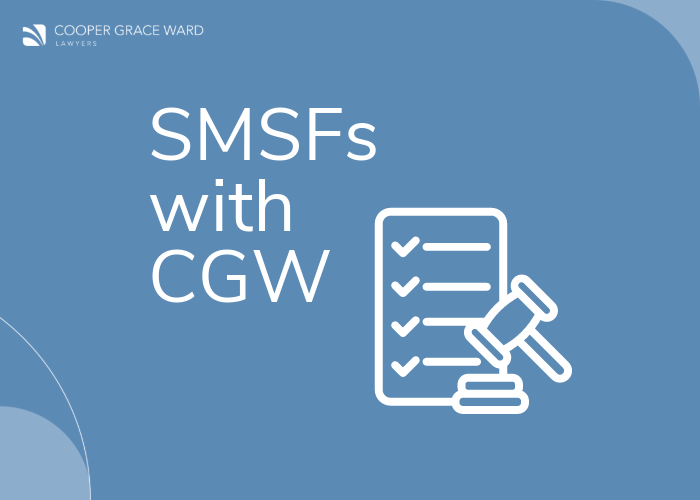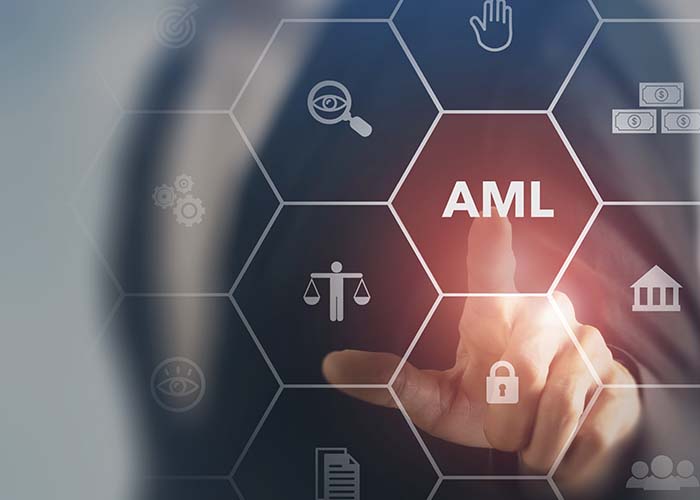The ramifications of COVID-19 are being felt by businesses, and not-for-profits and charities are no exception. Key changes and considerations for not-for-profits and charities are outlined in this article.
Introduction
Legislation and guidance from governing bodies is constantly in flux due to the COVID-19 pandemic. Between the restrictions in place and the relief packages available, it can be difficult to stay up-to-date with the latest information. This article discusses the major impacts of the pandemic on not-for-profits as well as incentives that may apply.
Terminating event agreements
Many not-for-profits will be required to reschedule or terminate events, including critical fundraising events, due to COVID-19 restrictions. Each contract must be assessed on a case-by-case basis to determine the options available.
Depending on the terms of the relevant agreement, force majeure clauses and the doctrine of ‘frustration’ may apply. CGW’s articles Can I terminate a business contract due to coronavirus? and A practical guide for companies in the era of COVID-19 offer an analysis of these concepts.
In summary:
- Force majeure clauses must expressly be included in contracts. These clauses operate by relieving either one, or both, of the parties from performance obligations due to an intervening event (such as a pandemic or government restriction). Check your agreement to see if it contains a force majeure clause.
- If there is no force majeure clause in the contract, the doctrine of frustration may offer relief. Frustration applies where an extraneous event occurs through no fault of either party, which renders performance of the contract impossible or radically different. It can be difficult to establish that a contract has been frustrated, so seek advice before taking any action on the basis of the doctrine of frustration.
Not-for-profits may have paid deposits for events and collected ticket revenue from attendees. The treatment of these payments (and the availability of refunds) will depend on the terms of the contract or ticket sale, and on the Australian Consumer Law, which is contained in the Competition and Consumer Act 2010 (Cth). The Australian Consumer Law may impose requirements for businesses to provide refunds or other remedies in respect of postponed or cancelled events. In addition to this, before applying any money collected to an alternative event or purpose, not-for-profits must ensure that the alternative use is consistent with its governing rules, the charity’s stated purpose and the donor’s original intent.
We recommend that not-for-profits seek advice on their respective legal position before communicating with event attendees or event partners.
Holding AGMs
Many not-for-profits are required to hold annual general meetings (AGMs) in the terms of their governing documents or pursuant to applicable state and federal legislation. Due to bans on non-essential gatherings, it will be increasingly difficult for organisations to hold AGMs with physical attendances for the foreseeable future. It may be possible for some not-for-profits to hold AGMs using technology or delay their AGM. Whether a not-for-profit can delay an AGM or hold an AGM using technology will depend on applicable legislation and their governing document.
For an overview of the options available to public companies see our alert How to meet AGM requirements despite COVID-19 restrictions.
Under the Associations Incorporation Act 1981 (Qld), incorporated associations in Queensland are usually required to hold an AGM within six months of the end of their financial year. However, in light of the effects of COVID-19, the Office of Fair Trading has granted a grace period of six months from the end of an association’s financial year to hold its AGM, without the need to make a written application. Available concessions for associations incorporated in other states and territories in Australia, will depend on the regulator for that state or territory.
Insolvency issues
In response to COVID-19, the Federal Parliament has passed the Coronavirus Economic Response Package Omnibus Act 2020 (Cth), which received royal assent on 24 March 2020. The Act introduced temporary insolvency measures to protect companies from the effects of COVID-19. For full details of the insolvency law amendments, see our article Government announces temporary relief from insolvent trading, statutory demands and bankruptcy notices.
Changes include:
- increasing the statutory minimums for issuing a creditor’s statutory demand or commencing bankruptcy proceedings
- increasing the period for responding to a creditor’s statutory demand or a bankruptcy notice
- extending the period within which unsecured creditors cannot take action to recover a debt against a debtor who declares an intention to present a debtor’s petition
- granting company directors temporary relief from trading while insolvent for a period of six months in relation to further debts incurred in the ordinary course of the company’s business.
At this stage, the relief available to directors of companies under the federal government insolvency amendments is not available to committee members of not-for-profits and charities that are incorporated associations. This means that committee members may still be liable for insolvent trading under state or territory specific legislation.
In addition to the usual prohibition against insolvent trading under the Corporations Act, registered charities are subject to an obligation under the Australian Charities and Not-for-profits Commission (ACNC) Governance Standards not to operate while insolvent. This requirement is also temporarily relieved for registered charities, provided that the charities:
(a) have an achievable aim to return to viability once the crisis has passed
(b) inform members and the ACNC if trading while insolvent.
Further updates on the ACNC’s response to COVID-19 are discussed in detail below.
Employer obligations and relief
CGW has answered frequently asked questions about how employers should respond to COVID-19 in our article Coronavirus – what are my obligations as an employer?. Employers may also consider issuing JobKeeper directions to employees, see our article New flexibilities announced linked to JobKeeper scheme – a guide for employers.
The State and Federal Governments have introduced several relief packages aimed at helping businesses through the coronavirus crisis. The current initiatives are set out below.
1. Cash flow boost
Certain charities and not-for-profits may be eligible to receive between $20,000 and $100,000 as credits in the activity statement system from the Federal Government. For a complete discussion of how the cash flow boost works, read our alert COVID-19 – how does the cash flow boost for employers work?.
To qualify for the boost, a not-for-profit must:
- employ staff
- have held an ABN on 12 March 2020 that continues to be active
- have an aggregate annual turnover of less than $50 million
- make payments to employees subject to the withholding tax provisions (such as payments of salary or wages).
Charities registered with the ACNC will be eligible for the cash flow boost, irrespective of their ABN active date, if they meet the other eligibility requirements.
Organisations do not need to apply for the boost. It will be automatically credited by the ATO when activity statements are lodged.
2. JobKeeper Payment scheme
The Federal Government has introduced the JobKeeper Payment scheme to assist businesses affected by COVID-19 to pay employees. Eligible employers will be reimbursed a fixed amount of $1,500 per eligible employee per fortnight for the period beginning 30 March 2020 with first payments being made in the first week of May 2020.
A charity or not-for-profit will be an eligible employer if:
- it pursued its objectives principally in Australia on 1 March 2020
- it suffered a relevant decline in turnover as follows:
- for a registered charity (but not a university or school), a decrease in turnover of 15% compared to the same month or quarter in 2019
- for an entity with an aggregated annual turnover of $1 billion or less, a decrease in turnover of 30% compared to the same month or quarter in 2019
- for an entity with an aggregated annual turnover of more than $1 billion, a decrease in turnover of 50% compared to the same month or quarter in 2019.
There is a specific list of eligibility criteria for the employees that an employer can be reimbursed in respect of, but generally the scheme applies to permanent full-time and part-time employees and long-term casual employees. A charity or not-for-profit cannot make a claim for any employees who:
- were first employed after 1 March 2020
- left employment before 1 March 2020
- have been, or have agreed to be, nominated by another employer.
Casual employees are only eligible if they were employed on a regular and systematic basis for at least 12 months as at 1 March 2020.
For further details, read our articles JobKeeper package a lifeline for both employers and employees and JobKeeper payment – do you meet the decline in turnover test?.
On 23 April, the ATO released an alternative ’turnover decline‘ test to assist employers where they cannot satisfy the primary test discussed above.
There are some key critical dates for the JobKeeper package, which you should be familiar with if the payments may apply to your employees.
3. Payroll tax relief
The Queensland Government has implemented a payroll tax relief package that includes potential for refunds of payroll tax, a limited payroll tax holiday and deferral of payroll tax payments. Full details of the package are available in our alert COVID-19 – What is the payroll tax relief in Queensland?.
Broadly, to be eligible for this package, charities and not-for-profits need to:
- pay taxable wages of $6.5 million or less; or
- if the entity pays taxable wages of more than $6.5 million, have been negatively affected by COVID-19.
A business is directly or indirectly affected by coronavirus if current turnover, profit, customers, bookings, retail sales, supply contracts or other factors are negatively affected compared with normal operating conditions.
The relief is only available to organisations subject to payroll tax in Queensland on application to the Queensland Revenue Office.
4. COVID-19 jobs support loans
The Queensland Government has introduced the Job Support Loan scheme to provide loans of up to $250,000 (with no repayment or interest in the first year and a fixed rate of 2.5% interest in subsequent years) to assist Queensland business and not-for-profit organisations that have operated since 1 July 2017.
The loans are intended to assist relevant business during COVID-19 to meet working capital expenses such as employee wages, rent and rates, existing business loan and equipment finance payments, paying creditors and buying goods, including fuel, for the purposes of carrying on the business.
The loan cannot be used to refinance existing business loans or equipment finance or to purchase new equipment or other assets.
As at the date of publication, the Queensland Government has closed the Jobs Support Loan scheme to new applicants due to high demand but applications may reopen.
ATO assistance
The ATO has announced it will consider deferring some of the tax and super obligations of not-for-profits and charities experiencing financial difficulties. Payments that may be eligible for deferral include income tax, activity statement, pay as you go instalments, fringe benefit tax and excise payments. However, these payments will not automatically be deferred. Organisations must contact the ATO to seek a deferral as the ATO will be assessing relief on a case by case basis.
The ATO has also implemented a COVID-19 remission policy, whereby interest and penalties incurred on ATO debts on or after 23 January 2020 will be remitted. Where appropriate, the ATO is also considering adjustments to payment plans.
Rent relief
The Federal Government has announced it will implement a mandatory code of conduct relating to rent relief for commercial tenants. The code will apply to tenants (including registered charities and not-for-profits) with an annual turnover of up to $50 million that are suffering financial hardship as a result of COVID 19 (determined by reference to the thresholds referred to in connection with the JobKeeper Payment scheme).
The code does not provide express relief but rather a set of principles to assist in balancing the interests of landlords and tenants of commercial premises and encouraging these parties to enter into tailored arrangements.
Some noteworthy leasing principles are as follows:
- Landlord must offer rent reductions (in the form of waivers or deferrals) in proportion to the reduction of trade the tenant has experienced from the COVID-19 crisis. For example, a 60% loss in turnover would result in 60% cash flow relief.
- Tenants should be provided with an opportunity to extend their leases for an equivalent period of the rent waiver or deferral period agreed with the landlord.
- Landlords must not:
- terminate leases or draw on a tenant’s security due to non-payment of rent
- increase rent
during the COVID-19 pandemic period (or a reasonable recovery period).
- Any reductions in statutory charges (such as land tax and council rates) or insurance must be proportionately passed on to the tenant.
- Landlords must not penalise tenants for reduced opening hours or ceased trade during the COVID-19 pandemic.
Additionally, the Federal Government has announced that it will waive rent for all not-for-profit tenants in federal government owned or leased properties across Australia.
Each state and territory will be individually responsible for implementing the code. The Queensland Government has confirmed that it will implement temporary legislative changes to protect tenants, including eviction moratoriums and rent freezes. At the date of publication of this article, the relevant legislation has not been enacted.
ACNC guidance
Annual information statements
The ACNC Commissioner has approved an extension of the due date for lodgement of annual information statements. Charities with due dates between 12 March 2020 and 30 August 2020 are now only required to lodge their annual information statements by 31 August 2020.
Compliance investigations
In recognition of some of the changes in operations and challenges that may arise for charities during the COVID-19 pandemic, the ACNC has stated that it will not investigate certain breaches of the ACNC Governance Standards and the
External Conduct Standards occurring between 25 March 2020 to 25 September 2020. Generally, the exemptions rely on a COVID-19 related excuse, such as inability to obtain overseas records due to effects of COVID-19, or otherwise acting in good faith to assist in the response to COVID-19.
Takeaways
Charities and not-for-profits will be affected by COVID-19 in numerous ways but there are many forms of relief that are available to assist in navigating this crisis.
Charities and not-for-profits should ensure they are transparent about how COVID-19 has impacted their operations and seek legal advice before taking action that is outside of the course of ordinary business.







